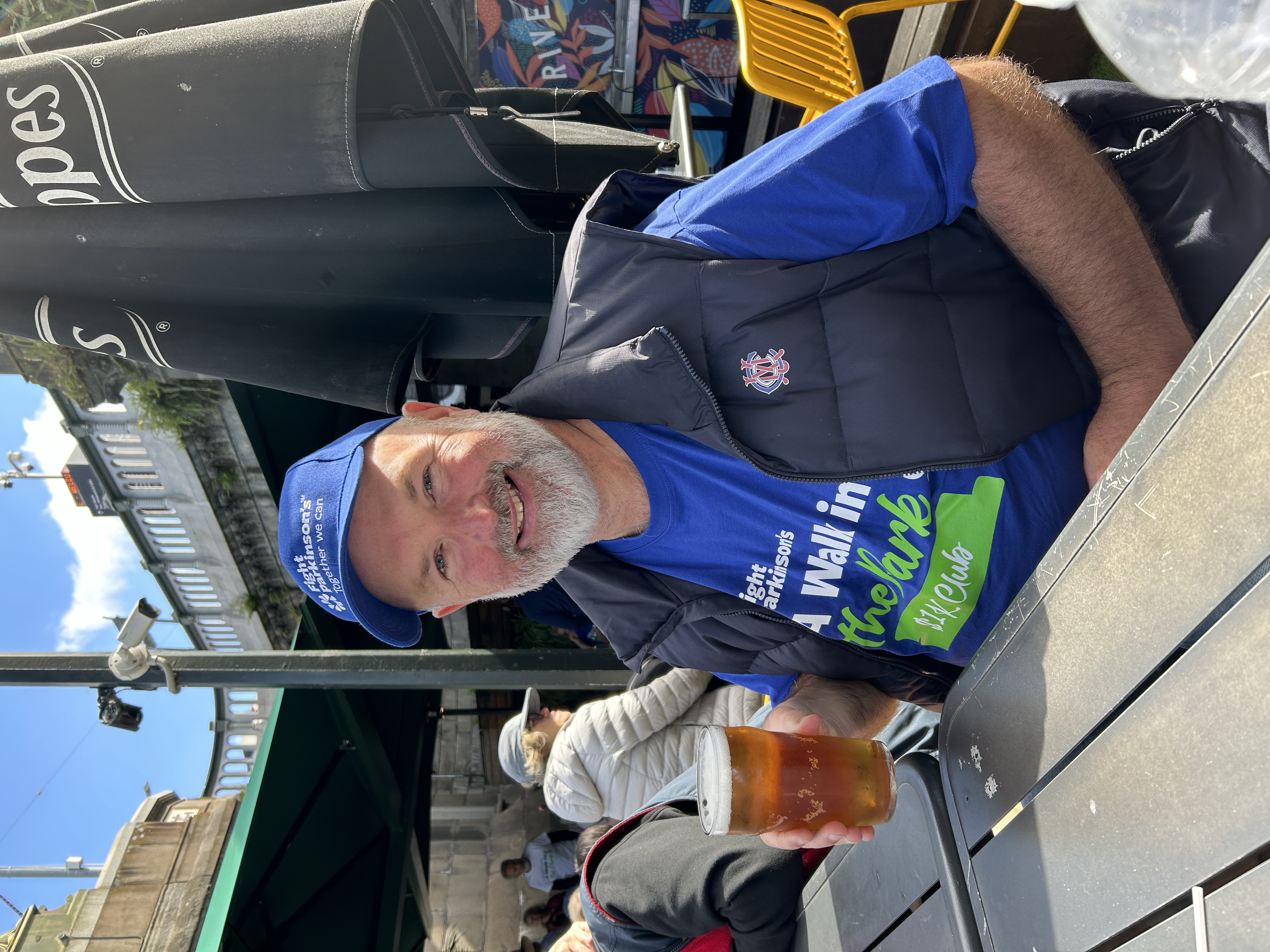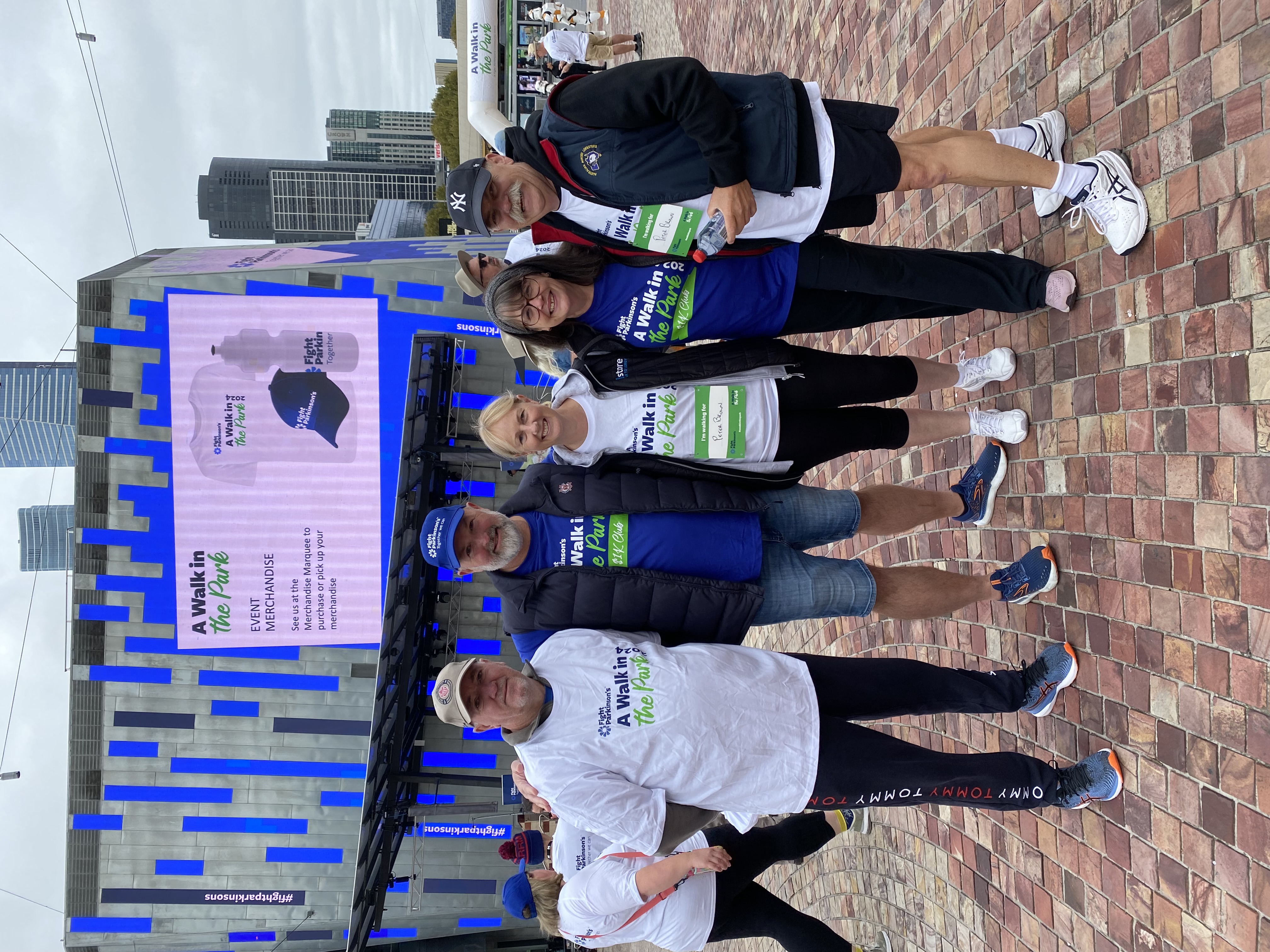Newly diagnosed, Peter rallies support for Parkinson’s
Peter Brown was A Walk in the Park 2024 top individual fundraiser, newly diagnosed and inspired to join the community and raise awareness with family and friends.
 Born and raised in Melbourne, Peter, 51, has always been deeply connected to his community. He has shared his life with his wife Melanie for 22 years.
Born and raised in Melbourne, Peter, 51, has always been deeply connected to his community. He has shared his life with his wife Melanie for 22 years.
Amidst years of working in sales, travelling with Melanie and going on trips with his friends, Peter began experiencing subtle hints of Parkinson’s that he initially dismissed.
He recalls moments like struggling to get his leg into a pair of shorts or shuffling his feet after a long day playing golf. Peter now looks back at these moments, recognising that they were Parkinson’s symptoms.
It wasn’t until last year when they were watching a Michael J. Fox documentary, that Melanie pointed out that Peter had some of the symptoms mentioned. He was referred to a neurologist, who officially diagnosed him with Parkinson’s in March.
He asked his neurologist what support was available and she recommended the Fight Parkinson’s website. He saw that A Walk in the Park was happening in a few weeks and he signed up right then and there.
Peter took the approach of, “I’m only going to get diagnosed for the first time once. I just really leaned into that and reached out to people to ask for support.”
His fundraising efforts were met with overwhelming support from his network. Through social media and reaching out individually to his friends, he had 51 separate people donate to his fundraiser, raising over $8,000.
Peter attributes the success of his fundraising to building a strong network of support. He says the donations just added up over time, whether it was $20 from his friend’s kids or those who had returned the favour of Peter’s generosity in previous years.
On the day of A Walk in the Park, Peter had with him his wife Melanie, his brother-in-law and some close friends. Reflecting on the day, he says the best part of A Walk in the Park was meeting other people living with Parkinson’s.
"What I’ve found so far about the Parkinson’s community is that they’re open to talking to you. I met people and asked, ‘How’s it been for you?’ And they just open up and tell you. And for me, who’s just been diagnosed, it’s really interesting to see what to expect.”
Since then, Peter has attended several online and in-person education events and has even joined the Young@Park Group for people living with Young Onset Parkinson’s. He is enthusiastic about getting involved and learning as much as he can about the condition.
“I saw a neurologist for half an hour, who, following a diagnosis and discussion, gave me a pamphlet and wished me all the best. If I hadn’t reached out to you guys, I wouldn’t know half the stuff I know already. I wouldn’t have been at the Research Symposium and learned all about Deep Brain Stimulation and things like that.”

Immersing himself in the community has provided Peter with practical insights into navigating life with Parkinson’s. “I realise that everyone’s journey’s a little bit different, but it’s giving me an understanding of what to expect. I’ll probably need to do some travel in the next decade. I’ll probably need to work and bank some money now because I’ll probably have to retire earlier than expected. I’ll be doing the Fight Parkinson’s course on the NDIS.”
For Peter, his involvement in the Parkinson’s community is not just about his journey; it’s also about supporting Melanie. “The other reason I wanted to get involved in the Parkinson’s community was for my wife. We don’t have kids, so she’s going to have to be a lot of support for me. And if I’m cranky and she doesn’t want to talk to me, she needs other people to talk to.
I think it’s important for her to have a network of people within the community who can empathise with her. I need to ensure that she’s going to have support as I get older and more difficult to deal with. I think that’s why the Parkinson’s community will be good for both of us. And meeting other people at A Walk in the Park like that, who care for other people and understand. It will be good for her.”
As Peter navigates his recent diagnosis, he remains pragmatic: “I can’t change the diagnosis, so you can either embrace it or not. I’m not working at the moment and I’ve got time on my hands. So, let’s just try and learn about it, learn what I can do to help it and support people where I can.”